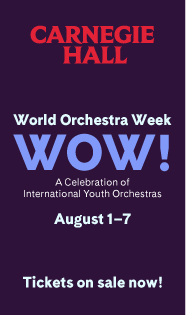Worlds converge in Schiff’s thoughtful program of Schumann and Janáček

András Schiff performed music of Schumann and Janáček Thursday night at Carnegie Hall.
At the start of the second half of his recital Thursday night at Carnegie Hall, pianist András Schiff picked up a microphone and told the audience that “It’s not a good idea to talk about music.”
Rather than leave the whole of criticism and musicology in the lurch, Schiff went on to offer some insight into the two composers whose works he was playing, Janáček and Schumann. After saying that they “had nothing to do with each other” in history, he added that they were “kindred spirits,” both drawn to language. For Janáček, that meant the spoken word—specifically, according to Schiff, the dialect of Moravia—and literature for Schumann.
Schiff had already demonstrated how well the music of the two fit together, playing On the Overgrown Path, Book I by Janáček and Schumann’s Davidsbündlertänze on the first half. After his brief words, he finished the concert with Janáček’s Sonata 1.X.1905, “From the Street” and the Piano Sonata No. 1 in F-sharp minor, by Schumann.
Even with the mini-lecture, Schiff’s performance was in no way didactic, and this program showed the pianist at his best. A subtle artist who uses his thinking to find the key elements of beauty and expression in what he plays, he took the obvious tack with two composers who both went against convention and made them sound like two sides of the same coin.
Both were storytellers—Schumann no less concerned with bringing his own imagination about himself to the listener than Janáček, who was so often driven to make music that showed how he felt about the world around him.
On the Overgrown Path is explicitly about language, built from Moravian folk melodies. This series of vignettes is full of speech-rhythms and speech-melodies, some, like “They Chattered Like Swallows,” almost onomatopoeic. Janáček grounded these with new harmonies, elements like the sinuous bass line in “Our Evenings.” Schiff played this with great freedom and the music sounded less like melody and harmony than two singers with different and complementary ideas about the same song.
While On the Overgrown Path translated the stories of others into music, Davidsbündlertänze was Schumann’s original collection of fiction. Fundamentally inspired by the literature of Jean Paul and E.T.A. Hoffmann, the music is a kind of meta-fiction—the Davidsbündler was an imaginary music society, and the “dances” are a sort of debate between Schumann’s invented alter-egos, Eusebius and Florestan.
While other pianists put the emphasis on the “tänze,” Schiff got down to the fundamentals, playing the music like it was a narrative. Relaxed and lyrical, this was charming in the extreme—gentle moments like “Einfach” had a cleansing loveliness to them.
There was much more weight to the second half, driven by the depth of the music. The Sonata 1.X.1905 was Janáček’s response to the death of a young worker, who was part of a protest calling for a Czech language university, at the hands of the Austro-Hungarian police. Without manner, Schiff pressed at the tragedy in the music, like a thumb on a bruise, and brought out the physical quality in the music. There was an agitation that was layered with something close to breathing, with artful swells and descents.
One relished the opportunity to hear Schumann’s First Sonata—the second is played far more frequently. Also attributed by the composer to Eusebius and Florestan, the piece was dedicated to Clara Wieck, as of the date of publication not yet Schumann’s wife, and it uses a bit of her own music in the first movement.
After Janáček’s storytelling, this was a superb choice, beautifully played. The relatively free, dream-like structure is much closer to a written narrative than the abstract one of sonata form. The call and response between the two hands that keeps returning in the first movement sounded, via Schiff, like Schumann reinforcing his own determination to forge on through music and through his secret relationship with Wieck—perhaps it was the voices of Eusebius and Florestan urging him on.
The Aria movement was a microcosm of the concert as a whole. Schiff’s playing was gentle and simple. Yet that was deceptive, as what he did was to pull back a curtain on the full, sublime depths of the music.
Called back, the pianist played an encore, what he called a “real sonata,” Beethoven’s Op. 78 F-sharp major sonata. His touch was light, devil-may-care, sociable. Called back again, he let Schumann say good night with “The Happy Farmer.”
Yefim Bronfman plays Debussy, Schumann, and Schubert 8 p.m. April 4. carnegiehall.org
